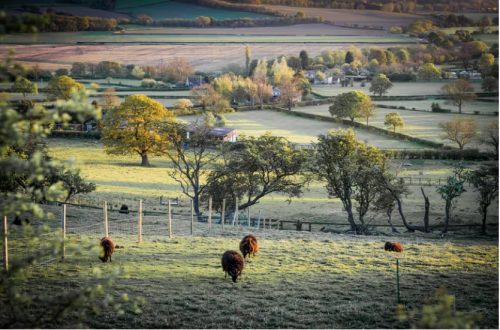This is a guest post by a “faith group member”
The Telegraph reports:
John Denham, the communities secretary, said the values of Christians, Muslims and other religions were essential in building a “progressive society”.
He attacked secularists who have called for religion to be kept out of public life.
Mr Denham revealed that a new panel of religious experts has been set up to advise the Government on making public policy decisions.
The move has been criticised by secularists who warned that it represented a worrying development.
However, Mr Denham argued that Christians and Muslims can contribute significant insights on key issues, such as the economy, parenting and tackling climate change.
In an interview with The Sunday Telegraph, he admitted that the Government had failed to listen to these voices in the past, but is now determined to include them in the decision-making process.
“Anyone wanting to build a more progressive society would ignore the powerful role of faith at their peril,” he said.
“We should continually seek ways of encouraging and enhancing the contribution faith communities make on the central issues of our time.
“Faith is a strong and powerful source of honesty, solidarity, generosity – the very values which are essential to politics, to our economy and our society.”
The minister said that the Government needed to be educated by faith groups on “how to inform the rest of society about these issues”.
Last year, the Church of England was highly critical of Labour, with bishops questioning the morality of its policies and accusing it of giving preferential treatment to the Muslim community.
Mr Denham said it was wrong to give special status to minority faiths, such as Islam, and stressed that faiths should not be free from criticism.
“I don’t think you should have special treatment or special favours for any particular faith. I think the treatment, in terms of the ability to have robust debate or criticism of it, should be equal.”
He added that he was sympathetic with religious leaders, such as Dr Rowan Williams, the Archbishop of Canterbury, who had complained of the rise of aggressive secularism in Britain.
“I don’t like the strand of secularism that says that faith is inherently a bad thing to have and should be kept out of public life,” Mr Denham said.
Now, I am a member of a “faith group”. The faith group to which I belong happens to be a minority one, although I am sure that many members of the Church of England would share my concerns.
Basically, this proposal depresses me hugely. I want to explain why.
By way of introduction, I should say that don’t think that religion is a bad thing. I enjoy my religion, and I believe that religion has a positive role to play in people’s lives. I also think that religious people ought to play a role in public life, just as any other citizen should.
What worries me about John Denham’s plans is this.
First, I am an ordinary member of my religion. I find its traditions inspiring, and am proud of its contribution to the world which we share. I attend services perhaps ten times every year. Sometimes more, sometimes less. My ‘faith identity’ is important to me, but it isn’t the only way I think about myself. I am, first and foremost, British. I’m a Londoner. I support my local football team. I enjoy cooking and playing music. My friends come from every faith and cultural group – including atheists – that you can imagine. This, I think, is pretty typical of members of my religion, and of ordinary adherents to most religions in Britain.
Most ‘religious leaders’ are not like me. They govern every aspect of their lives according to their faith, which is the central and most important thing in their lives. I wouldn’t necessarily call them extreme. Just very, very focussed.
In many ways, I do look up to my religious leaders. They set the standard for me and my co-religionists. I am quite happy that they keep the traditions of my faith going, so that it survives, and so that I can dip into it for support and sustenance when I need it.
However, they do not speak for me, particularly when it comes to “the economy, parenting and tackling climate change”. Why should they? I don’t see the world exclusively through the prism of my religion. Most members of my faith don’t either. The clerics and faith leaders I know do see everything from a religious perspective. That’s fine when it comes to things like the best way to fulfil my religious duties, but when it comes to such matters as “the economy, parenting and tackling climate change”, I disagree with them more often than I agree with them. They don’t have degrees in economics or environmental science. Some faith leaders are required to stay celibate – what would they know about ‘parenting’? In fact, when it comes to such matters as gender and sexuality, my faith leaders are almost always wrong – as far as I’m concerned.
The thing is, the clerics and community leaders who run my faith are very ‘traditionalist’. They are bound by thousands of years of precedent, that they find difficult to challenge. Because I’m not a priest, I can take these considerations into account, and come to my own conclusions about them. Clerics don’t have the same freedom of manoeuvre. It is, however, very difficult for me to challenge a learned religious scholar from a ‘faith’ perspective. I don’t have the learning. So when my ‘faith leader’ tells me that – say – homosexuality is a sin, I disagree, but I can’t effectively challenge them from a religious perspective.
Giving faith leaders my voice, silences me.
Does this herald a return to the days in which you had to get a religious leader to front up for you, if you wanted public money?
Here’s another concern. Because I am a member of a minority faith, all my life, I have had a nagging question in the back of my mind. Do I really belong in Britain?
I love this country, party because I feel part of its history and because I identify with its traditions. I am also hugely lucky to live in a country where we are all equal: as subjects of the Crown or citizens of the European Union. Racists and bigots make me nervous, because they think I shouldn’t be here. But they haven’t shaken my confidence in Britain, because they are themselves a minority and because they have no political power.
What John Denham is proposing to do worries me much more than the racists and haters. No doubt with the best of intentions, John Denham wants is to divide British people into little confessional groups. I know that’s not what he thinks he is doing, but by seeking to reach out to me through ‘my’ faith leaders, that is precisely the effect of this initiative. Many of my co-religionists live in a country which, when Britain ruled it, was kept in order by striking deals with members of the different religious and ethnic communities. Divide and rule, it was called. My parents came to Britain to get away from the legacy of sectarianism, but John Denham seems to want to bring it back again.
Does John Denham thing that I am an ‘exotic’ foreigner, who can only be communicated with via men with beards? Does John Denham think I belong in this country, as an equal?
One final thing worries me. Does John Denham have the skill and knowledge of my own religious community, and that of others, so separate the ‘progressives’ from the ‘reactionaries’, and worse? There are some very nasty and extreme people out there, some of whom are clerics. The government has often cocked up and reached out to guys who – were they atheists – would be thought of as fascists. Will John Denham do so again?
Don’t get me wrong.
I do think that there is a time and a place to consult with faith group leaders. Kosher and halal school meals for Jewish and Muslim kids, and not having exams during major religious festivals. That sort of thing. That is no different from, say, a residents association being consulted about improvements to the local park.
But when the state tries to mediate its relationship with me through my faith leaders, it betrays me, personally.


